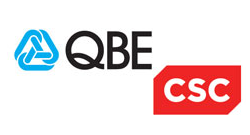The Misdirected Email Mishap: A Lesson from Boris Johnson and Laura Kuenssberg
In recent news, the BBC cancelled an interview with Boris Johnson after briefing notes containing sensitive information were leaked. This incident highlights how crucial it is to secure sensitive data, especially in high-profile contexts like media or political interviews. For businesses and individuals alike, email security is essential to prevent such leaks from happening.
The Risks of Email Vulnerabilities
The modern digital landscape means emails are the backbone of daily communications. Sensitive documents, business strategies, private exchanges, and even legal advice are often shared via email. Unfortunately, this method of communication is highly vulnerable to breaches if not handled with care. Email leaks, as seen in the BBC case, can lead to public embarrassment, loss of trust, and legal ramifications.
Email security is not just about preventing outsiders from accessing information but also about ensuring that internal mishandlings don’t result in accidental leaks. Here are several critical email security strategies that everyone should be following:
- Email Encryption
One of the simplest yet most effective ways to secure emails is through encryption. Encryption ensures that only the intended recipient can view the contents of the email. Whether you’re sharing confidential business strategies or sensitive briefing notes, encryption prevents unauthorised users from reading the content, even if intercepted. - Access Control and Permissions
Not everyone in an organisation should have access to every piece of sensitive information. Use role-based access control (RBAC) to limit who can view, edit, or share critical emails. In the case of the leaked BBC interview notes, tighter access controls could have mitigated the risk of unauthorised sharing. - Phishing Awareness
A significant number of email breaches occur due to phishing attacks, where individuals are tricked into sharing login credentials or clicking malicious links. Regular training sessions and simulations can keep employees alert to these types of threats, reducing the chances of compromising sensitive information. - Data Loss Prevention (DLP) Solutions
DLP tools can monitor and control the sharing of sensitive data. These systems can detect when confidential information is about to be sent outside of the organisation and stop the email in its tracks, preventing accidental or malicious leaks.
Email security is paramount in an era where a single leak can have massive ramifications. Whether you’re a media organisation handling sensitive interviews or a business exchanging financial data, taking proactive steps—like encryption, access control, and phishing awareness—can help prevent breaches. As seen with the BBC and Boris Johnson’s interview, the consequences of lax email security can be both public and damaging. Make email security a priority to protect sensitive data and maintain trust.
Read our case study ‘How one client landed a phishing defence solution to protect staff from malicious email‘.
If you are working on an email security project or need specialist expertise, additional resources, or a fresh perspective, we’re here to help. Contact us at hello@handd.co.uk or request a call back.
























